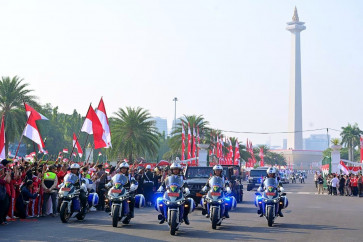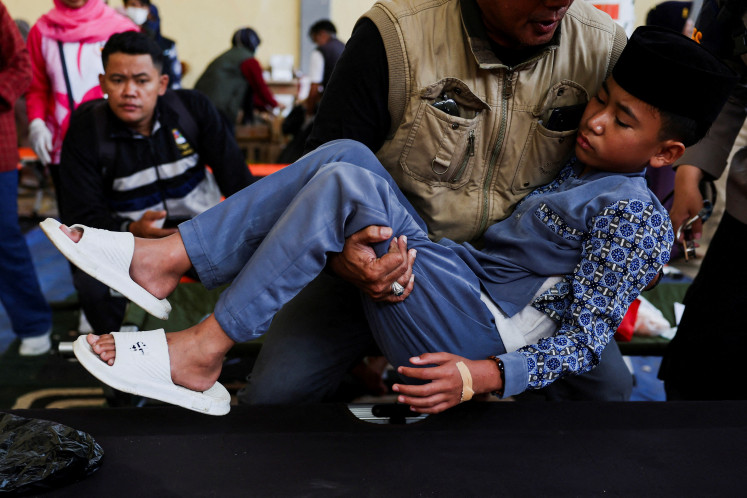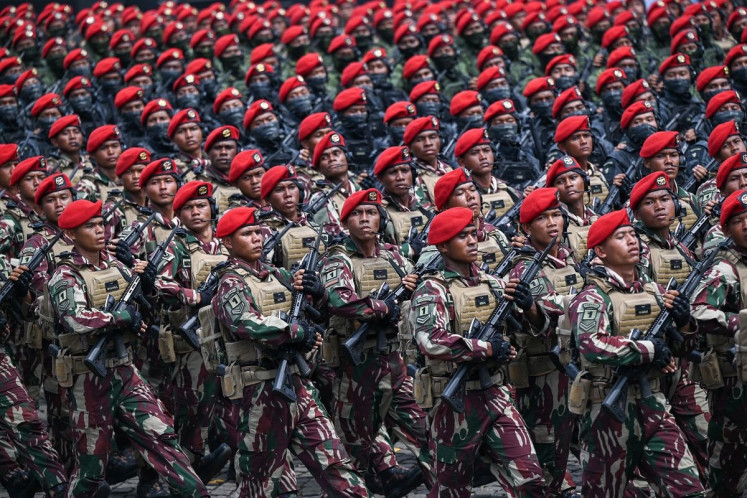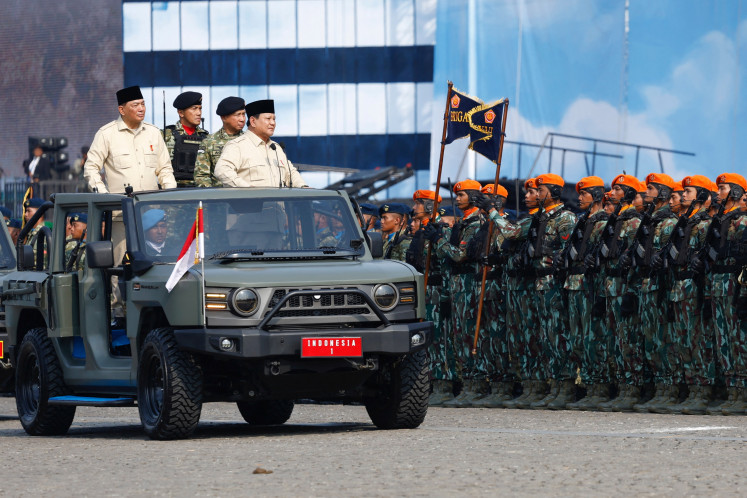Popular Reads
Top Results
Can't find what you're looking for?
View all search resultsPopular Reads
Top Results
Can't find what you're looking for?
View all search resultsRe-examining the role of religion in world peace
As religiosity continues to increase globally, no one can doubt the need to consider the role that religion can and should play in our efforts to achieve world peace
Change text size
Gift Premium Articles
to Anyone
A
s religiosity continues to increase globally, no one can doubt the need to consider the role that religion can and should play in our efforts to achieve world peace.
In our contemporary world, religion is often perceived as the cause of discord and conflict. Yet, religion is also widely regarded as a positive force that shapes human thought and behavior and frames the way in which individuals and society interact.
Religion reaches the deepest roots of our motivation. In touching the human spirit, it has awakened in whole populations the capacity to love, to forgive, to create, to dare boldly, to overcome prejudice, to discipline our impulsive instincts and to make sacrifices for the common good.
Indeed, one could say that the seminal force behind the civilization of humanity has been the influence of religion. History, however, is replete with examples of suffering and domination in the name of religion, and far from ensuring the wellbeing of mankind, followers of religion have engaged in ruinous actions.
It is timely, if not overdue, for us to critically re-examine the role of religion in the cultivation of lasting world peace. Can we move beyond the prevalent models that, for example, either regard religion as a barrier, or at best, a peripheral consideration in our quest for peace?
For a meaningful exploration, it is necessary to place religion in historical perspective ' to consider humanity undergoing a millennia-long process of evolution, from its collective infancy to what we see today: humanity at the threshold of maturity.
The present turbulence afflicting the world can then be understood within this context of our collective progress. Just as the individual passes through the unsettled yet promising period of adolescence, humankind as a whole is in the midst of an unprecedented transition. Behind so much of the turmoil we see in contemporary life are the fits and starts of a humanity struggling to come of age.
Two processes characterize this transition; one destructive in nature, the other integrative. For example, while we see violent extremism in the name of religion on the rise, we also witness more and more well-intentioned people coming together to promote harmony and deepen mutual understanding. Both these forces serve to carry humanity, each in its own way, along the path leading to full maturity.
All religions promise a future in which the peace and prosperity of humankind will be established.
However, this eventual realization of human prosperity cannot be viewed as something that will be realized without effort.
Such a lofty horizon requires our continuous and perseverant labor, generation after generation, and it is religion that touches the core of humans and motivates us to better ourselves and society; religion sends each of us on a life-long educational journey, helping us to banish ignorance and prejudice.
In addition to nurturing a personal state of peace, the scriptures of all religions have always taught that the development of our inner lives is intimately linked to pure and godly deeds, and that we must see service to others not only as a moral duty, but an avenue for our own approach to God. Religion in this light educates individuals in their efforts to contribute selflessly to society.
But how can we achieve lasting peace? There are numerous movements that recognize the essential role of religion in promoting harmony, for example, religious groups coming together to work toward peace. These efforts however, are limited by a conception of religion that strictly maintains artificial boundaries of faith, belief or nation.
If we explore religion at a deeper level, looking to the universal teachings, we glean that human beings are essentially one. The analogy of the human body is a profound model in this regard.
In the human body, billions of cells with extraordinary diversity of form and function collaborate to make human existence possible. Every cell has a reciprocal part to play in maintaining a healthy body. The cells, organized in tissues and organs, allows for the realization of distinctive human capacities. From this amazing system, something appears that is more than the sum of its parts ' the soul.
Similarly, human civilization can be seen as the outcome of a set of cooperative and reciprocal interactions between the different components of society, and just as the viability of every cell and every organ matters to the health of the body as a whole, the peace and prosperity of every individual, every family and every nation is necessary for the wellbeing of the entire human race.
Religion, understood in such a way, impels us to transcend the limitations of self-interest. It requires us to ensure that our efforts contribute to our collective development and advancement. It helps us truly appreciate our inter-connectedness and our inter-dependence. Together with the sciences, it raises new questions about how we relate to one another.
For instance, how can one part of the body of humanity be at war with another part of the body? And, is it enough for one part of the body to merely tolerate another?
If we are to draw from religion as a source of knowledge, inspiration and guidance, these and further reflections are necessary for the next stage of our evolution towards peace. Responsibility to make it happen lies with each and every one of us.
_____________________________
The writer is a representative of the regional office of the Baha'i International Community. The views expressed are his own.










